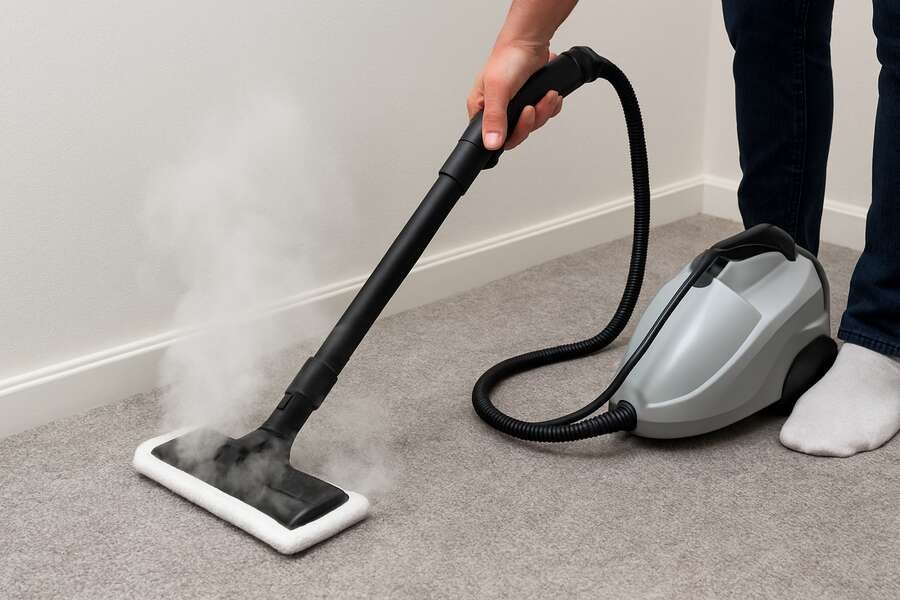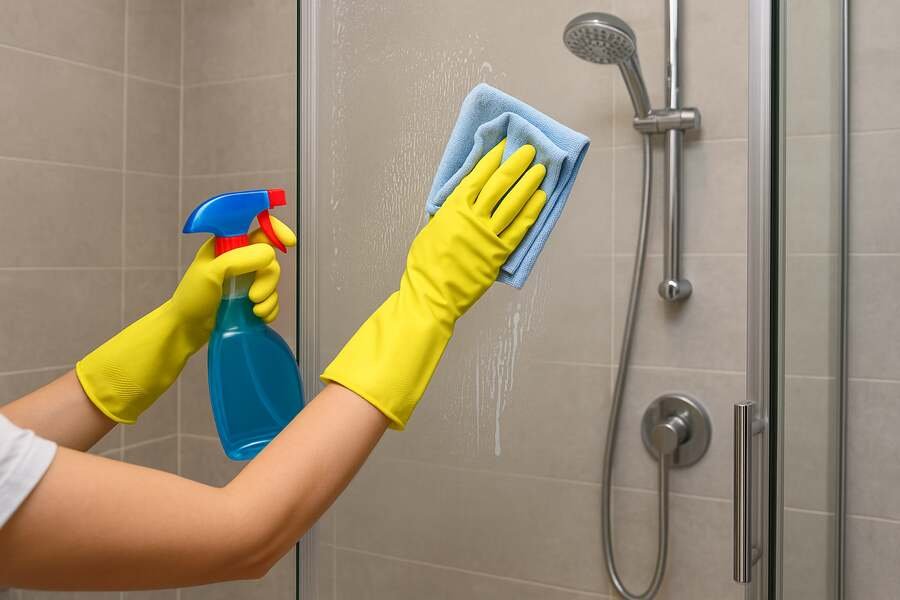How to Keep Your Home Clean and Fresh in Humid Weather?

How to Keep Your Home Clean and Fresh in Humid Weather?
Do you have the feeling that all things in the house are sticky and dirty, no matter what you do to clean them up? Humidity is not resting at the air levels only; it is sticking to your furniture, making mould, depositing a film on your floors and making everyday cleaning a war. Have you ever noticed that stuffy smell in your home or your stuffiness in the home? Do you ever wonder why your home smells musty, or do you dry the moisture with a towel every time you are at home? Well, you are not the only person. A hot and sticky atmospheric climate will render your house stale and not very hospitable. However, fear not, there are intelligent, easy solutions to respond. Armed with the right tools, routines, and some smart tricks, you can win the war on moisture and mess. Through this blog, it is going to be a mix of an interesting subject, i.e. Best home cleaning hacks that make your living environment clean, dry and comfortable and in all the sticky situations.
1. Begin with a Powerful Dehumidifying Plan
The first thing that would attack is the humidity because it is your greatest foe during sticky weather, as per Bond Cleaning Maroochydore. Install dehumidifiers in wet places such as bathrooms, laundry and the basement. In small areas, one can make his/her dehumidifier by utilising rock salt or baking soda in open vessels to aid in the natural absorption of moisture. Leave fans on, such as ceiling fans and exhaust fans, to keep air moving and moisture down.
2. Clean Spaces with Vinegar to Prevent Mould and Mildew
Mould and mildew can easily grow in humid conditions, as judged by the fact that they grow quickly on bathroom tiles, window sills and kitchen counters. White vinegar is a very good and natural mould eliminator. In a spray bottle, mix a damp solution of vinegar and water in an equal ratio and spray on any problem areas daily. It disinfects and also aids in the prevention of the regrowth of the mould and the musty odour.
3. Sticky Dust with Microfibre Cloths
Dust will stick up in humid conditions, and when this happens, it is more difficult to clean up, and further, it tends to smear. Use microfibre instead of normal rags or paper towels. Dirt and moisture are captured by these cloths and absorbed quickly, which makes them more effective in removing that sticky layer. Clean with dry dust and afterwards with a wet microfibre cloth to polish the surfaces.
4. Mop the Floors using a Solution of Tea Tree Oil
Sticky floors are one of the attributes of humid weather. Instead of potent cleaning solutions, mix warm water and a few drops of tea tree oil and white vinegar. It is a natural floor cleaner which digs through dirt, disinfects and leaves a fresh and clean smell. Mop the floors (at least those near the door) more often in order to avoid spreading sticky footprints all around your house.
5. Furniture and Cushions Regular Airing Out
Covered furniture like cushions, sofas and mattresses is more prone to moisture, and they may begin to smell musty or, worst still, develop mould on the inside. Once in two weeks, they should be put in the sun to allow the moisture to dry off naturally. During the early morning, when the humidity is low, open your windows and doors so as to make the fresh air flow to the sections that have a lot of fabric.
6. Not All Baking Soda Belongs in the Oven
Baking soda can naturally absorb moisture and neutralise odour. It can be sprinkled in shoes, garbage cans, inside closets, and even under the cushions to counter superfluous wetness and regulate odours. It may also be combined with water to a paste form and used to scrub the sticky residue off such surfaces as counter tops, sinks and stovetops.
7. Design a Bathroom Drying Protocol
The bathrooms will easily be wet areas during hot weather. To dry a glass and tiles, apply a squeegee every single time during the process and keep the exhaust fan on 15-20 minutes after each shower and wait to allow an increased flow of air. Keep the door open to allow free flow of air, wash bath mats and towels regularly thereby keeping out mildew.
8. Preserve Closets using Charcoal or Silica Gel Packs
In a sticky climate, your closets are the first to smell musty. To dry moisture, hang bags of charcoal or keep packs of silica gel in the corners. There is also an option of using a fresh scent by using the scented dryer sheets. Never clutter your wardrobe to have a situation where clothes can barely breathe and compete against moisture.
9. Refreshing Kitchen Cabinets and Pantries
Sealed rooms like cabinets and pantries may get moisture creep in and leave a wet stain and even contaminate the food. Spray shelves every now and then with vinegar or lemon juice and leave an open box of baking soda or uncooked rice in there to dehydrate the air. This will prevent the spoilage of your dry foods, and your cupboards will not smell.
10. Handles and Doors Do Not Forget
Clammy fingers and wet atmosphere deposit leaves marks on the handles of the doors, inside of the fridge, and knobs of the cupboards. Use a disinfectant or a solution of vinegar and wipe these several times a day. They are high-contact points and can very well be bacteria-carrying, especially when the air is dense and wet.
Conclusion
Weighing and moisture are the conditions that can spoil the freshness of your home. These easy, but efficient tips and tricks of cleaning help to minimise dampness, prevent mould and make the environment a bit more airy and comfortable. The trick is to maintain the regularity, ventilate frequently, and clean with natural products that efficiently get rid of the grime associated with the humidity issue but contain no aggressive chemicals.
Thus, you can feel even during the muggy weather and heavy air that your home will give you a cooling, clean, and welcoming moment.



